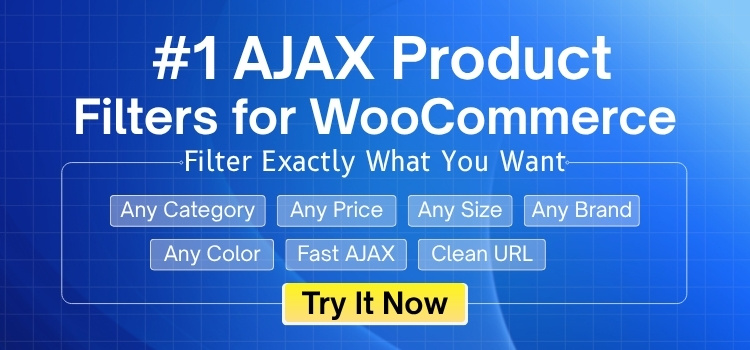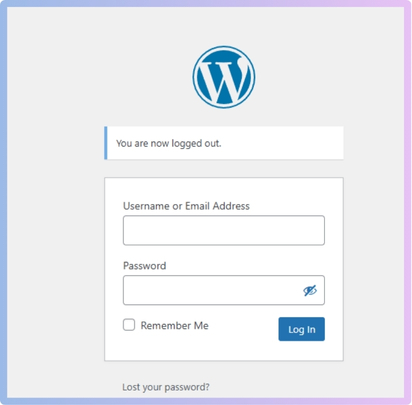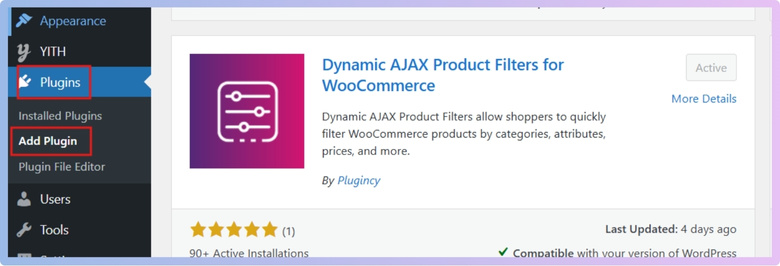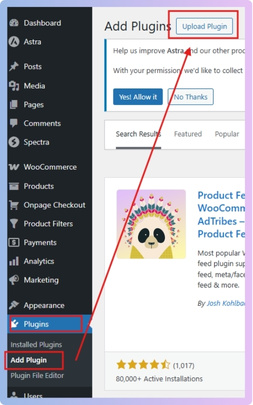Adding a product filter plugin to a WooCommerce store can completely change how people shop. It makes browsing faster and less confusing, especially when your store has many items. That’s why many store owners search for what is the best free WooCommerce product filter plugin.
The best free WooCommerce product filter plugin is Dynamic AJAX Product Filters for WooCommerce. It offers fast AJAX filtering, supports price, rating, and custom attributes, works with all themes, and includes dropdowns, sliders, and SEO features—all without needing advanced setup.
Want to know if this plugin fits your store or how to set it up? Keep reading because this article shares everything you need to know—from features to setup steps and extra tips. You’ll find all the details in one place.
What Is the Best Free WooCommerce Product Filter Plugin?
When you have many products on your online store, it’s helpful to let visitors find exactly what they want quickly. That’s where product filter plugins come in handy. Let’s look at some great free ones below!
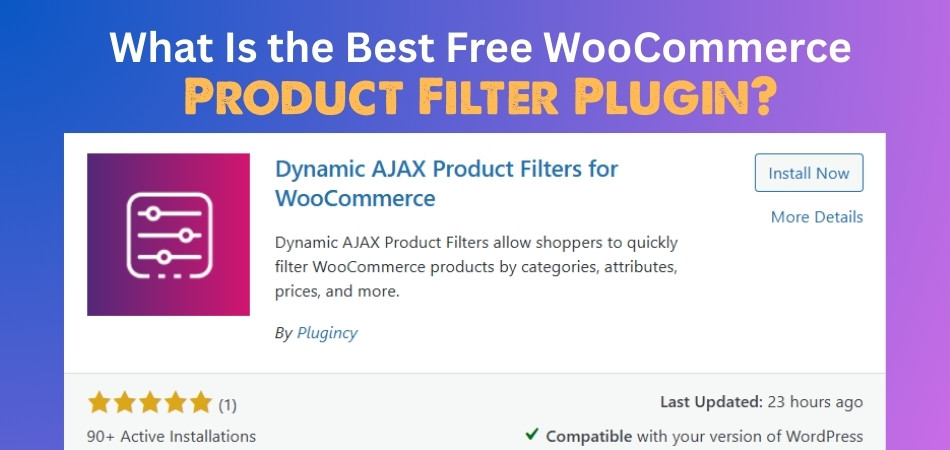
Importance of Product Filter Plugin
E-commerce stores with large product catalogs often make it difficult for users to find exactly what they’re looking for. A product filter plugin enables shoppers to refine their search based on specific attributes, helping them quickly locate what they want. Without effective filters, customers may become frustrated and leave your site. In fact, streamlined filtering has been shown to reduce bounce rates and boost sales. That’s why integrating a feature-rich and responsive filter system is no longer optional—it’s a necessity.
One of the best free solutions available today is the Dynamic AJAX Product Filters for WooCommerce plugin. As a top-rated WooCommerce AJAX product filter plugin, it offers a perfect balance of flexibility, speed, and customization options to improve both customer experience and site performance.
Key Features of Dynamic AJAX Product Filters for WooCommerce
Advanced Filtering Options
- Filter using query strings (e.g., ?filters)
- AJAX-powered for fast, reload-free filtering
AJAX Filters, Pagination, and Sorting
- Real-time updates without page reloads
- Smooth pagination and sort functionality
Diverse Filtering Choices
- Filter by price, rating, category, tags, and attributes
- Options like size, color, brand, etc.
Theme Compatibility and UI Variety
- Works with custom and premium themes
- Dropdowns, checkboxes, sliders, and more
Advanced Styling and SEO Features
- Elementor styling, customizable permalinks
- SEO meta setup based on selected filters
These features cover everything a store owner needs to provide a fast, intuitive, and flexible shopping experience. The plugin is packed with functionality while remaining easy to use, even for non-developers.
Alongside these features from this plugin, you can gain even more benefits—let’s explore why it stands out as the best option below.
1. Unmatched Filtering Speed and Performance
The Dynamic AJAX Product Filters plugin is built for speed, utilizing AJAX technology to update product listings instantly as filters are applied. This eliminates the need for full-page reloads, offering a smooth and engaging experience for shoppers.
With quick response times, users are more likely to continue browsing and adding items to their cart. Compared to other free plugins, this one stands out in terms of load speed and responsiveness. Even on large product catalogs, performance remains consistent and reliable.
2. Wide Range of Filter Options for Better Navigation
This plugin supports an impressive variety of filter criteria, including price, categories, product tags, ratings, and custom attributes like size or color. You can even filter using images, sliders, radio buttons, or dropdowns, making navigation intuitive and visually appealing.
Whether your store sells fashion, electronics, or anything in between, the filters can be tailored to suit your inventory. Customers appreciate the ability to narrow their search quickly, which can directly boost sales. The more control you give your shoppers, the more likely they are to convert.
3. Smooth Integration with Themes and Page Builders
Another standout feature is the plugin’s compatibility with both custom and premium themes. It integrates smoothly with Elementor, offering advanced styling options to match your store’s branding. Many filter plugins break or look out of place with custom themes, but this one adapts without extra code or complex configuration.
You also have the option to place filters anywhere using shortcodes, adding to the flexibility. Whether you’re building a theme from scratch or using a marketplace template, integration is hassle-free.
4. User-Friendly Design and Enhanced UI Elements
The user interface is clean, responsive, and highly customizable. Choose from multiple filter styles such as checkbox, radio, slider, or even color swatches to suit your store’s design. You can collapse widgets for a cleaner layout or enhance dropdowns with the Select2 option for better usability.
Every aspect of the UI is designed with user experience in mind, ensuring customers feel in control. A well-designed interface helps reduce friction and makes shopping more enjoyable.
5. Built-in SEO and Customization Tools
Unlike many free filter plugins, this one includes features that benefit your site’s SEO performance. You can set up SEO meta tags based on active filters, making filtered pages more discoverable by search engines. Permalink structures can be customized to ensure clean and meaningful URLs, which is a plus for both SEO and usability.
These advanced options are rarely found in free plugins and provide long-term benefits for organic traffic. If you’re serious about visibility and site performance, this plugin gives you an edge.
The Dynamic AJAX Product Filters for WooCommerce is one of the most comprehensive and reliable free filter plugins available today. It offers excellent speed, flexibility, and user-friendly design, making it ideal for improving product discoverability. The free version covers all the essential features most stores need. However, if you require more advanced options or enhanced customization, consider upgrading to their premium version for even greater control and functionality.
How to Install the Dynamic AJAX Product Filter for WooCommerce?
Installing a product filter plugin can make shopping easier for your website visitors. It helps them find what they want faster without checking every product. If you’re new to this, don’t worry—it’s pretty simple once you know how. Let’s break it down step by step so you can get started today.
Method 1: Install via WordPress Admin Dashboard (Free Version)
This is the quickest and easiest method to install the free version of the plugin directly from the WordPress plugin repository. It requires no file downloads or manual setup and is recommended for most users.
Here are the steps to follow:
- Log in to WordPress Admin:
- Go to your WordPress dashboard by logging in.

- Go to your WordPress dashboard by logging in.
- Navigate to Plugins:
- In the left-hand sidebar, click “Plugins”, then click “Add New”.
- Search for the Plugin:
- In the top-right search box, type “Dynamic AJAX Product Filters for WooCommerce”
- Install the Plugin:
- Locate the correct plugin in the results.
- Click the “Install Now” button next to it.
- Activate the Plugin:
- Once installation is complete, click “Activate”.
- The plugin is now ready for use.

Method 2: Install the PRO Version Using ZIP Upload
Use this method if you’ve purchased the PRO version of the plugin. You will receive a ZIP file, which you can upload directly from your WordPress dashboard.
Here’s how you can do it:
- Go to Plugins:
- Click on “Plugins” from the left menu.
- Then click on “Add New”.

- Upload the Plugin ZIP:
- Click the “Upload Plugin” button at the top of the page.
- Click “Choose File” and select the plugin ZIP file from your computer.


- Install and Activate:
- Click “Install Now”.
- After installation, click “Activate” to enable the plugin.
You’ve now installed the PRO version of the plugin using the ZIP file upload.
Method 3: Manual Installation Using FTP (Advanced Method)
This method is ideal for users who prefer more control or are unable to install plugins through the dashboard. It involves uploading the plugin files directly to your server using an FTP client like FileZilla.
This is how you can do it:
- Download the Plugin:
- Download the plugin ZIP from the WordPress Plugin Repository or from your PRO account.
- Extract the ZIP File:
- On your computer, unzip the downloaded file.
- Connect to Your Website via FTP:
- Open your FTP client (e.g., FileZilla).

- Enter your FTP credentials (host, username, password, and port).

- Open your FTP client (e.g., FileZilla).
- Upload the Plugin Folder:
- Navigate to this directory on your server:
/wp-content/plugins/ - Upload the entire extracted folder (e.g., dynamic-ajax-product-filters) into this directory.
- Navigate to this directory on your server:
- Activate the Plugin from the WordPress Dashboard:
- Return to your WordPress admin panel.
- Go to Plugins > Installed Plugins.
- Find Dynamic AJAX Product Filters for WooCommerce in the list and click Activate.
Your plugin is now manually installed and active on your site.
Key Things to Remember:
- After activation, you can find the plugin settings under WooCommerce > Filters or in a dedicated section in your admin menu.
- Make sure you have WooCommerce installed and active before using the filter plugin.
- If you’re using caching or optimization plugins, clear the cache after activation to ensure the filters work properly.
That’s everything you need to know to install the Dynamic AJAX Product Filter plugin. With just a few clicks, your store becomes easier to use.
What Types of Filters Are Typically Included in Free WooCommerce Plugins?
People usually want to find things quickly when they visit an online store. Filters help them skip all the scrolling and go straight to what they want. Free WooCommerce plugins offer basic filters, which are simple and easy to use. Let’s check out which ones are usually included and what’s often missing.
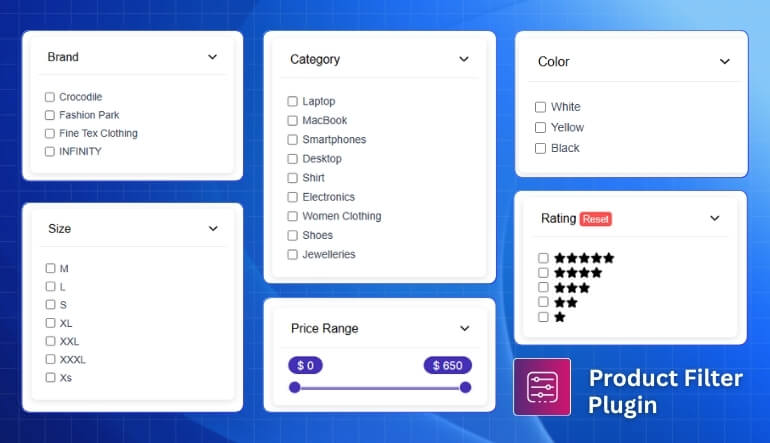
Category Filters
Many online shoppers prefer to browse by product type to save time. Free plugins often let you show filters for categories like shirts, bags, or shoes. These filters are normally shown on the side of the shop page. They help break your store into neat sections so users can explore faster. You can’t really customize them much, but they work for most needs. It’s a simple way to make product searching easier without doing much setup.
Price Filters
Shoppers almost always look for products that match their budget range. A price slider is commonly included in most free WooCommerce filter plugins. It lets users choose a price range, like $10 to $50, for products. The slider updates the product list without reloading the whole page. This filter works well, even in stores with many items. While it may not look fancy, it’s great for quick and easy price sorting.
Tag Filters
Some products in your store might have special tags added to them. These tags can include words like “best-seller,” “featured,” or “trending now.” A few free plugins allow filtering products based on those tags. This makes it easier to highlight popular or special items on your site. You can combine tags with categories for better filtering. While not every free plugin includes tag filters, many do support them nicely.
Attribute Filters
Stores that sell items in different colors, sizes, or styles use attributes. Most free plugins cover the basic available filter options for WooCommerce, such as price, category, tags, and attributes like size or color, making them suitable for general use without advanced customization. These filters help users pick the exact variation they want quickly. They are useful for clothing, gadgets, or beauty products. The design may be plain, but it works just fine.
Rating Filters
Sometimes shoppers want to see only top-rated items with great reviews. Rating filters can show results with four stars or more easily. A few free plugins offer this feature, but it’s not always included. These filters help people decide faster by skipping lower-rated products. They are useful but may not update automatically with new ratings. Still, they help shoppers choose trusted products without reading all the reviews.
Free filters are good for simple stores and regular everyday use. They help customers find what they want faster with less scrolling. You don’t need to set up anything complicated to make them work. If you want more options later, you can try paid plugins.
How to Know If a Free Filter Plugin Is Slowing Down Your WooCommerce Store?
If your WooCommerce store is feeling slow, it’s not always your internet. Sometimes, a plugin can quietly slow things down without you noticing. Free filter plugins are helpful, but they might cause issues as well. Let’s find out how you can check if a plugin is the reason behind it.
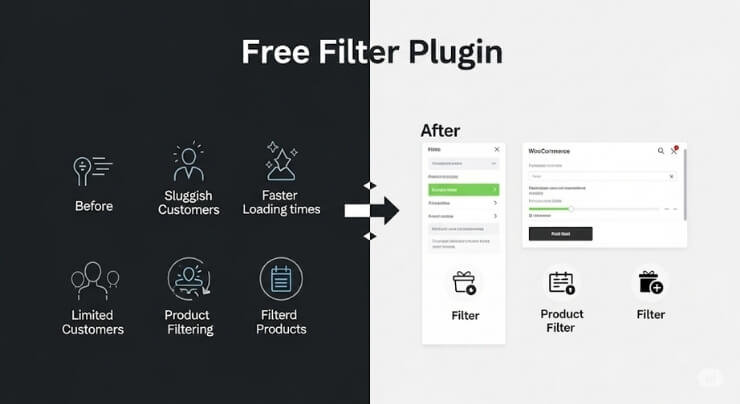
Use Page Speed Tools
There are free tools online that help you test your website speed. Google PageSpeed Insights and GTmetrix are two great ones to try. All you have to do is copy your store link and paste it there. These tools will scan your page and show a speed score. Try testing with the plugin active and then again without it. If the score drops with the plugin, it’s likely the problem. This method is quick and very easy to understand.
Check with and without the Plugin
To test your plugin’s effect, try turning it off and on again. First, open a page on your store that uses the filter plugin. Check how fast it loads and write it down if needed. Then turn off the plugin and check the same page again. If it loads faster without the plugin, it may be causing slowdowns. Make sure nothing else changes while doing this test. This helps give clear and fair results.
Watch AJAX Load Times
When filters work without reloading the whole page, they use AJAX. If the page keeps showing a loading spinner for a long time, that’s a sign. Press F12 on your keyboard to open the browser’s developer tools. Then click on the “Network” tab and use a filter. You’ll see how long each request takes to finish. If it takes many seconds, the plugin could be too heavy. This is a smart way to dig deeper.
Look at Server Load
Your website runs on a server that handles many tasks every second. Some plugins make the server do too much work at once. If your store slows down when the filter plugin is on, that’s a clue. Ask your hosting company if the plugin uses too many server resources. Some hosting dashboards even show CPU or memory usage stats. When usage goes up after activating the plugin, it’s a warning sign. Always keep an eye on this.
Try a Speed Plugin
There are special plugins that show which tools slow down your site. One good option is Query Monitor, which gives you a performance report. It lists plugins and how much time each one takes to load. If the filter plugin is high on the list, it may be the issue. You can use this info to switch plugins or report the bug. A small change like this can make your store much faster. It’s worth checking out.
These tips are simple and can help fix a slow WooCommerce store. Always test plugins before keeping them on your website. A fast store makes shopping easy and fun for your visitors. Try these tricks and see if your filter plugin is the one to blame.
Best Use Cases for Free Product Filter Plugins
Sometimes, a free product filter plugin is all a store really needs. It can still help customers find things fast without spending extra money. Many small or simple stores do just fine with free tools. Keep reading to learn when these plugins work best and how to use them.
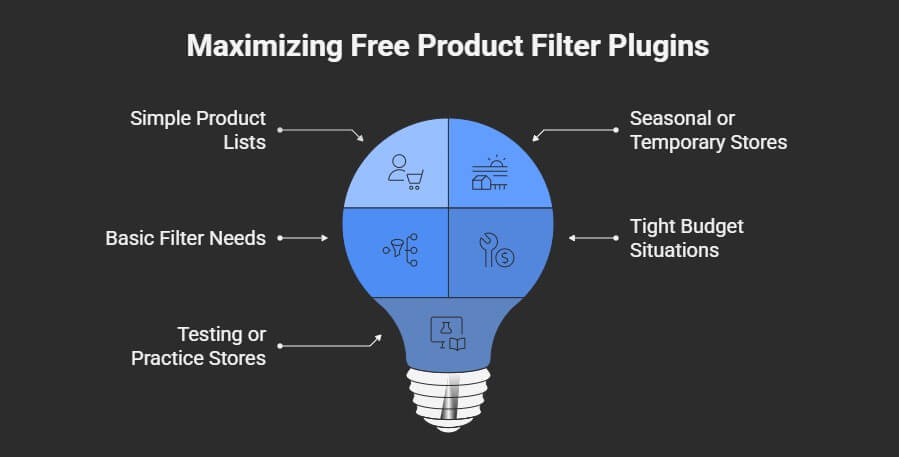
Simple Product Lists
A small store with only a few items doesn’t need complex tools. Free filter plugins can help people find items based on color or size. These filters are easy to set up and don’t take much time. They work great for stores selling crafts, t-shirts, or home decor. If you only sell a few types of items, that’s all you need. You can even create top-performing filters without using paid plugin features or upgrades.
Seasonal or Temporary Stores
Short-term stores like holiday or event shops don’t need anything advanced. A free plugin can give visitors basic filters like price or category. This helps people find things quickly without confusing extra options. You also save money because there’s no need to buy expensive tools. Free plugins work well for stores that are only open for a short time. They keep things simple and useful without adding any extra stress.
Basic Filter Needs
Many stores only need simple filters such as size, brand, or color. A free plugin can handle these without any extra features or cost. Customers can easily sort items without slowing down the website. You don’t need a large budget to give a smooth shopping experience. If you’re not using special filters, a free plugin is perfect. It keeps things light, quick, and easy for both you and the shopper.
Tight Budget Situations
Not every store can afford to spend money right at the start. Free plugins give store owners basic tools without charging anything at all. These work great for people just beginning or testing out new ideas. You can use simple filters that still make the shopping process easier. Even with no budget, your store can still work smoothly and clearly. Free tools like these are perfect when you need something that works fast.
Testing or Practice Stores
When trying out new ideas, you don’t want to waste money early. Free plugins let you test what works and what doesn’t in your store. This is helpful for practice stores or when you’re learning how things work. You can add basic filters and see how they help people shop better. There’s no risk since you’re not paying for anything extra. It’s an easy way to learn and improve your online store.
Free filter plugins can be really useful when your needs are simple. They save money while still helping customers shop without any trouble. You don’t always need a fancy or paid tool for good results. Try them out and see how well they work for your store.
Frequently Asked Questions
Here are some common questions people ask when looking for the best free WooCommerce product filter plugin. These FAQs will help clear up confusion and give you extra details that weren’t covered before. Whether you’re just starting or already using a plugin, the answers below can guide you further. Let’s go through some helpful and easy-to-understand questions and answers.
Can I Use Product Filters Without Coding?
Yes, you don’t need to know any coding to use product filters. Most free WooCommerce filter plugins are built to be simple and user-friendly. You can add filters by clicking buttons and choosing settings from menus. These plugins are made for everyone, so you can set them up without any tech skills.
Do Product Filters Work on Mobile Devices?
Yes, good filter plugins work well on phones and tablets as well. The layout adjusts so users can tap and scroll without any problems. A filter that is mobile-friendly helps shoppers find items faster, even on small screens. This makes your store easier to use for everyone, no matter what device they use.
Can I Add Filters to Any Page?
Most filter plugins let you place filters on different pages in your store. You can use shortcodes or widgets to show them where you want. This means filters can appear on category pages, shop pages, or even custom pages. It’s a great way to guide customers directly to the right products.
Will Filters Work With Variable Products?
Yes, many filter plugins support variable products like different sizes or colors. This means customers can use filters to choose the exact version they want. For example, they can look for only blue shirts in size medium. This helps make shopping easier and avoids showing products that don’t match what they need.
Can I Show More Than One Filter At a Time?
Yes, most plugins allow you to show several filters at once. Shoppers can filter by brand, price, and color all at the same time. This gives them more control and makes it easier to find specific items. Using multiple filters together makes your store feel smarter and more helpful.
Are Filter Plugins Safe for My Website?
Free filter plugins from the official WordPress plugin store are usually safe. Just make sure the plugin is updated often and has good reviews. Always keep your plugins updated to avoid bugs or security issues. Also, use trusted sources so your website stays safe and runs smoothly.
Will Product Filters Affect My Store’s SEO?
Product filters won’t hurt your SEO if they are built the right way. Some plugins even let you create clean URLs and custom meta tags for better SEO. Good plugins help your filtered pages get found on search engines. Just avoid creating too many similar filter pages to keep things clean.
Can I Customize the Filter Layout?
Yes, most free plugins give you some layout options to try out. You can choose between dropdowns, checkboxes, or sliders to fit your style. Some also let you change colors or text to match your website theme. While free plugins have limits, they still offer enough design control to look good.
Do Filters Slow Down the Website?
A well-made plugin won’t slow your site if it’s coded properly. Free filter plugins that use AJAX usually keep things fast. Still, it’s smart to test your site’s speed before and after adding any plugin. Using lightweight plugins can help your store stay quick and responsive.
Can Filters Be Hidden or Collapsed?
Yes, many plugins let you hide or collapse filters to save space. This is useful if your page looks too crowded with all the filter options open. Shoppers can click to open only the filters they need. It helps keep the design clean and makes the page easier to scroll through.
End Note
Choosing the right filter plugin can make your online store easier to shop. Free filter tools are great when you’re starting small or keeping things simple. They help your visitors find what they want faster without spending extra money.
If you’ve been wondering what is the best free WooCommerce product filter plugin, the answer is the Dynamic AJAX Product Filters for WooCommerce. It’s fast, flexible, easy to use, and gives you everything you need to offer a better shopping experience at zero cost.
Before you choose any plugin, test it with your theme and check your site speed. Always keep your store updated and clean to avoid errors. Start small, learn what works, and build from there. Wishing you the best as you grow your online store and make shopping easier for everyone!
